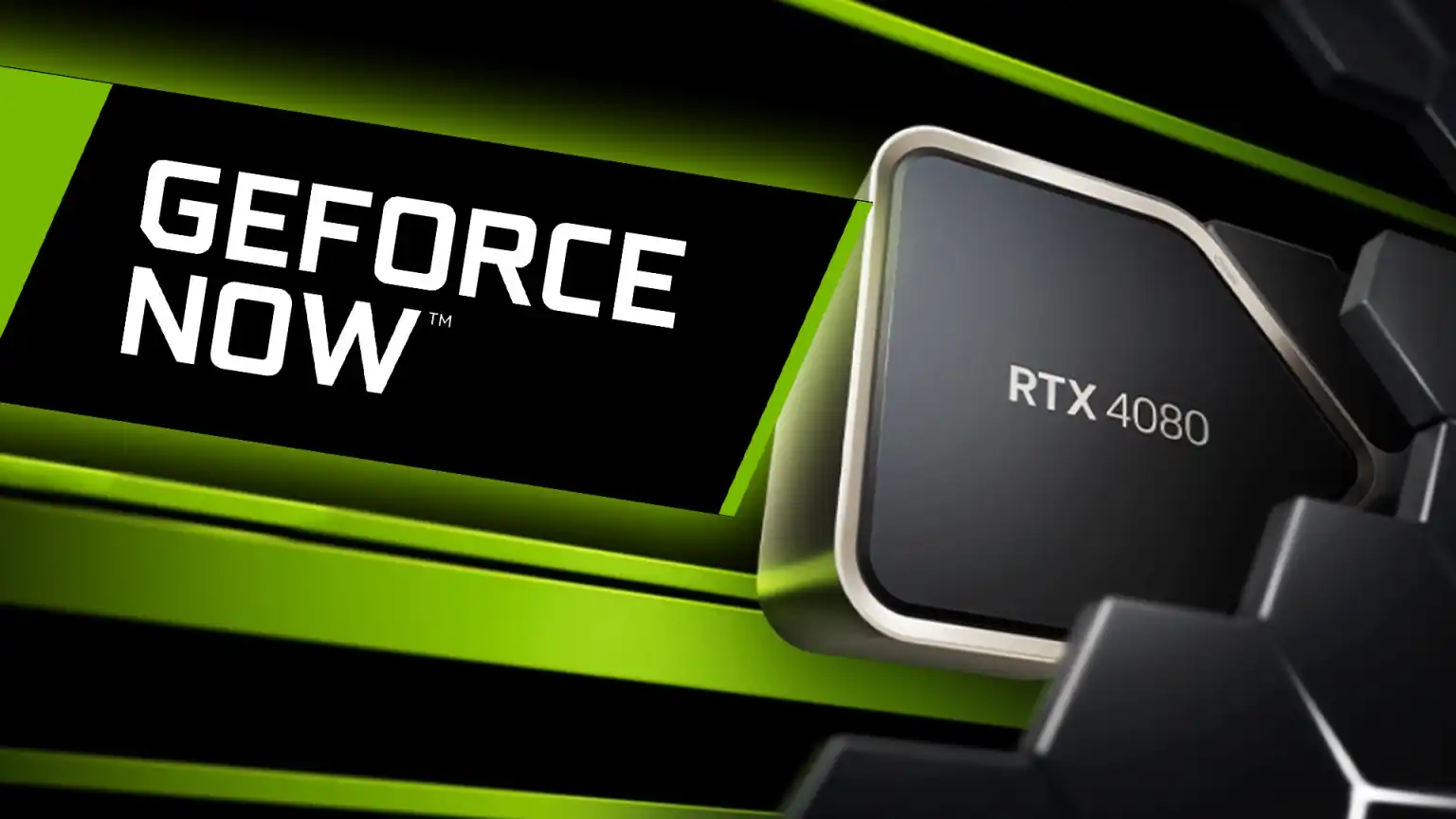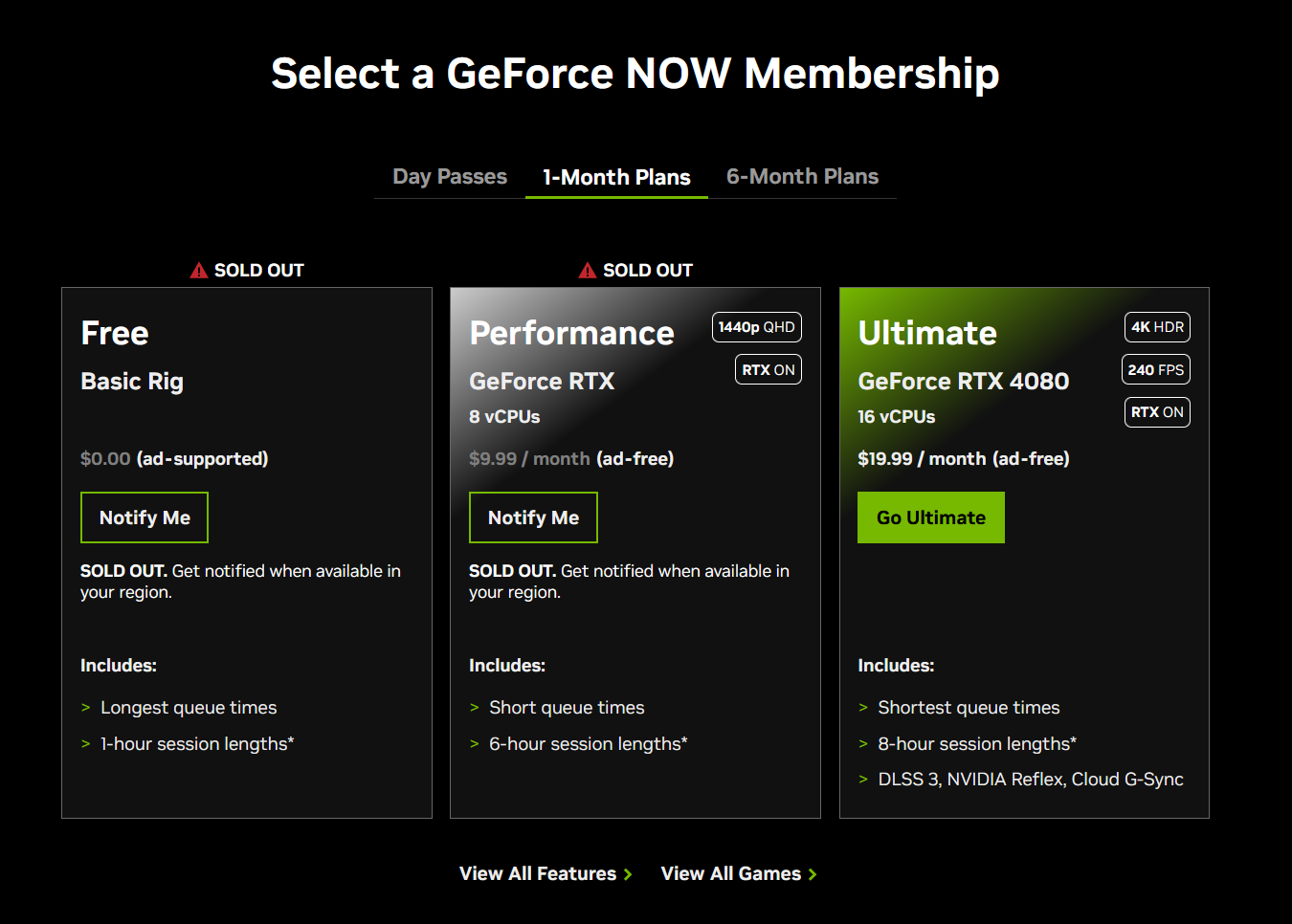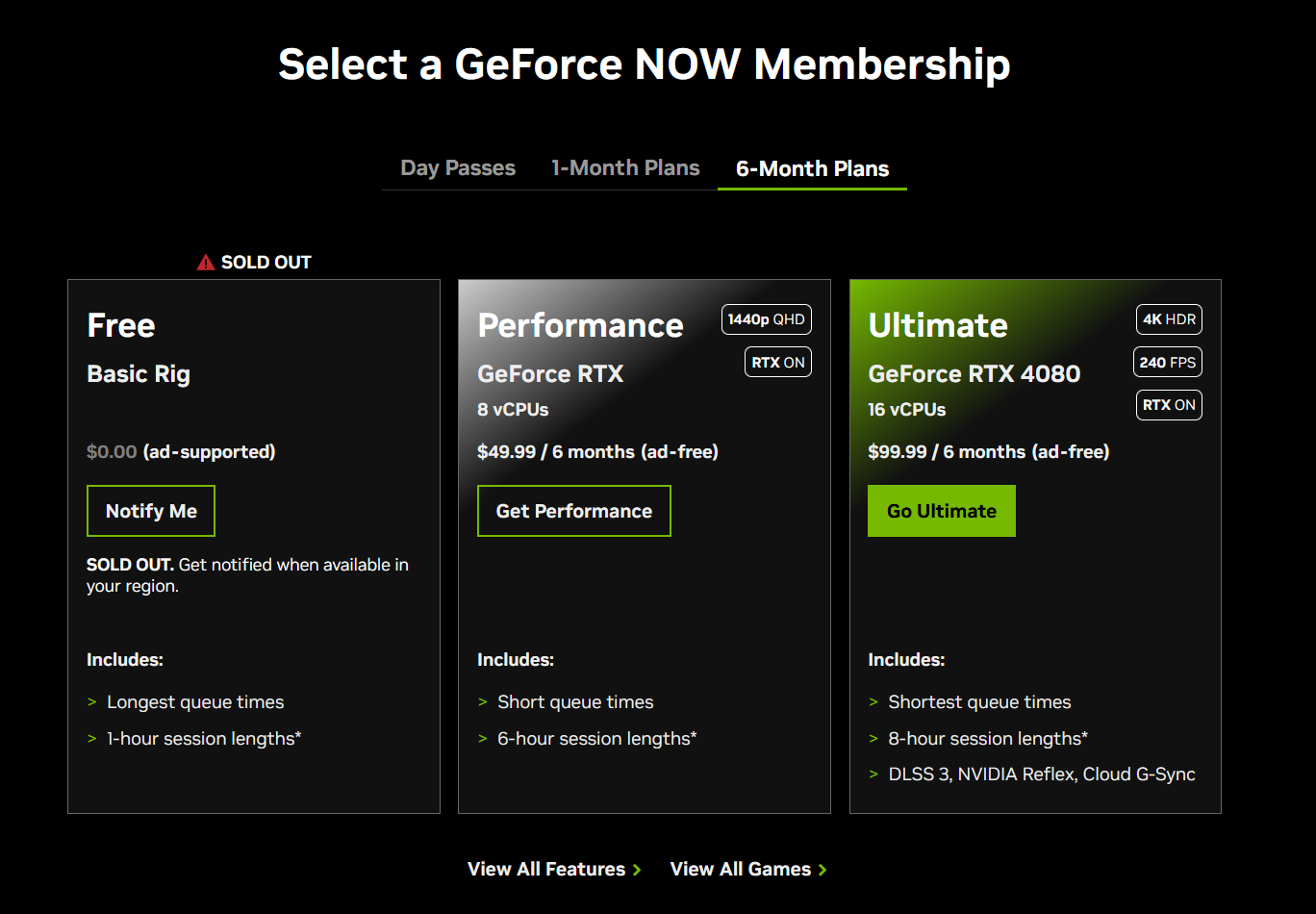
Most of Nvidia's GeForce Now game streaming tiers are currently unavailable, reportedly due to high demand. Gamers looking to opt for Nvidia's cloud gaming platform will be left disappointed, as five of the eight subscription tiers are currently sold out. Nvidia (via ComputerBase) attributes the current unavailability to high subscriber demand.
Further investigation suggests this is likely a global issue, as the same tiers remain inaccessible for several regions. Last year, Nvidia introduced Day Passes, which provide 24-hour access to Nvidia's high-performance machines without the commitment of a long-term subscription. Likewise, Nvidia also offers one-month and six-month memberships. These one-month and six-month plans are divided into Free (Basic Rig with Ads), Premium (1440p + RTX ), and Ultimate (4K HDR + 240 FPS + RTX) packages.
The affected plans include all the Day Passes, Free, and Performance tiers of the 1-month and the Free tier of the 6-month plan. The free-tier users are the most affected, as Nvidia is likely prioritizing premium users first. Nvidia says they are restricting supply so existing users can enjoy a seamless experience. GeForce Now isn't accepting new customers across several tiers to prevent the servers from being overloaded.



There could be several possibilities, but based on the given statement, it is fair to assume that Nvidia's servers are likely at full capacity and unable to keep up with the influx of new users. Back in November, Nvidia introduced a 100-hour limit per month for all tiers, roughly equivalent to around three hours per day. Any more, and you'll have to pay extra: $5.99 for 15 additional hours on the Ultimate tier, down to $2.99 for the Performance tier.
Thinking out of the box, if this was a capacity problem, it's improbable all servers would be affected similarly. Nvidia may be upgrading the underlying hardware while the existing hardware continues to function in parallel, but that's speculation.
While this may inconvenience newcomers, Nvidia is prioritizing service quality for existing subscribers. Moreover, this isn't the first time this has happened. Similar issues arose in 2020, so it's likely only a matter of time before Nvidia resolves this problem. It could be as simple as upgrading the existing infrastructure to accommodate more users, but we'll wait for more information from Nvidia before jumping to conclusions.







